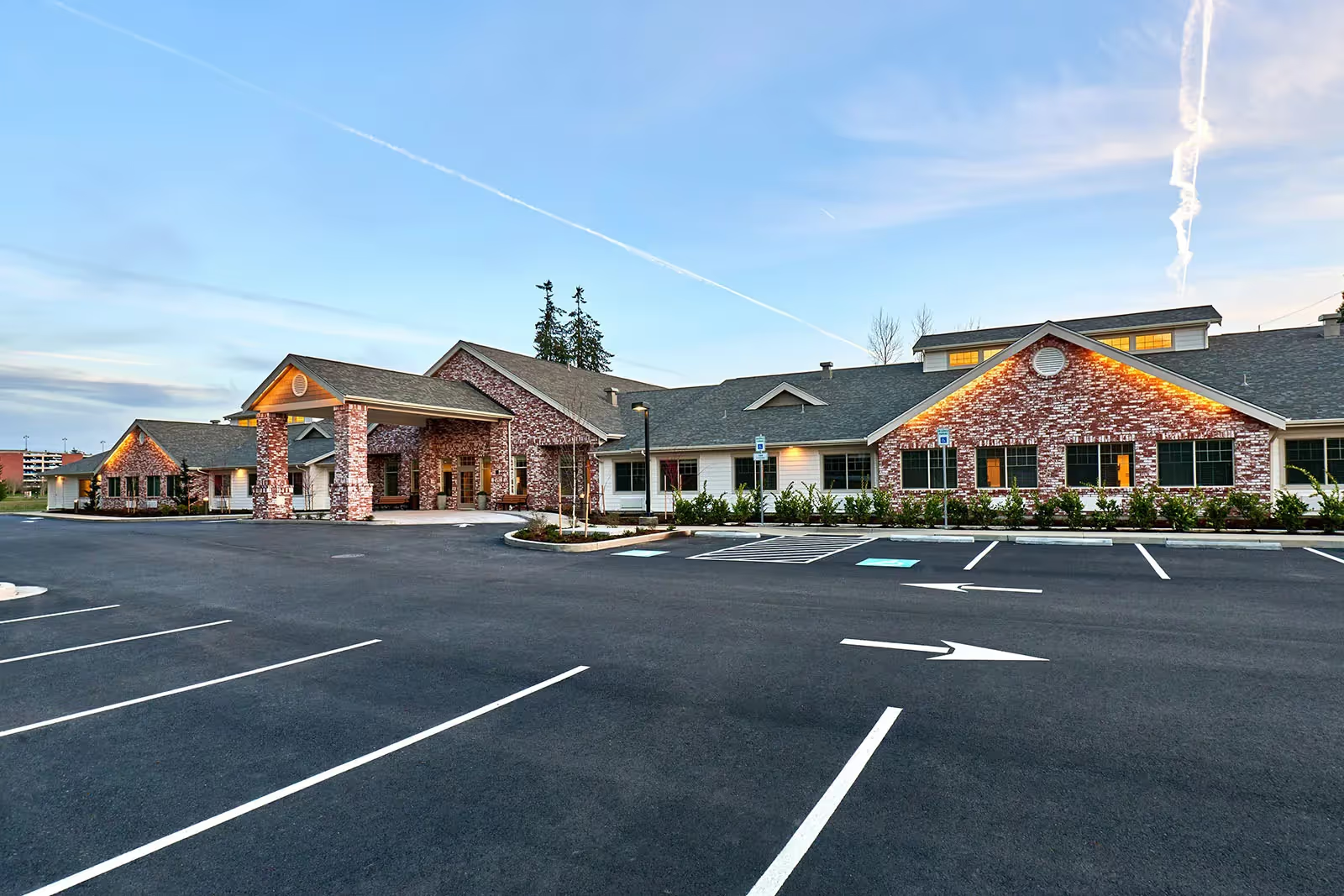Memory Care and Assisted Living both provide care and services for those with physical and/or cognitive challenges. Among other things, both typically provide housekeeping, laundry, meals, dressing/bathing assistance, and medication management.
The main difference between Memory Care and Assisted Living is in the training of the staff, activity programming, and the design of the environment. Memory Care staff have more training in the management of various types of dementia, and in how to address challenging behaviors related to these conditions. Activity programming and environments are also specially designed for those dealing with memory issues and confusion.
Another big difference between Assisted Living and Memory Care is the “secured” setting. Assisted Living residents are free to leave a community unattended if they’re physically able, while memory care residents cannot. Memory Care residents are monitored more closely, since it’s often not safe for them to be alone.
Hiring in-home care is a reasonable option when assistance can be scheduled, (bathing, scheduled medication management, preparing meals, etc.). However, when assistance is needed on an unscheduled basis, (help getting to the bathroom, safety supervision, as-needed medication management, etc.), in-home care can quickly become expensive and challenging.
Assuming a caregiving role can also be quite stressful and damaging to a caregiver’s mental and physical health. Being a caregiver changes the dynamics of many relationships. It’s no longer enough to just be the grown daughter or son, or the fun and supportive spouse. Now you have to provide in ways you may not have anticipated, and your time is no longer your own.
Assisted Living and Memory Care services are typically paid for privately out of pocket, through Medicaid (if your state provides this type of insurance), Long Term Care insurance, Veterans’ Affairs benefits, or some combination of these sources.
Medicare does not cover any type of community-based care.
Assisted Living and Memory Care fees can vary greatly, and Memory Care services typically cost significantly more than Assisted Living services. When considering these costs and how to cover them, it’s important to remember that there are many options available to you, and that you shouldn’t necessarily settle for the least expensive option, as it might reflect on the quality of care provided to your loved one.
Our financial teams are available at your convenience to review your needs and your options. We have a lot of experience with this, and we’re dedicated to ensuring your loved one receives the care you’d want for them.
Medicare is a federal program that provides health coverage for people who are 65 or older, or are under 65 and have a disability, no matter their income. Medicaid is a state and federal program that provides health coverage for low-income individuals.
Assuming your loved one is cognitively capable of participating in this decision, everything should start with a conversation. Discuss what an ideal situation looks like from their point of view. If they’re not already living with you, would you want them to, and would they want that? If this kind of multi-generational living is not feasible or desirable, then take some time to learn more about how assisted living works. Explore communities in your area. Make a plan for how to pay for care. Consult a variety of sources at every turn, because there’s so much to learn from others who provide and rely on this kind of care.
And finally, prepare for the transition. This entails consolidating belongings, coordinating the move, and gathering and managing legal documents. Put the work in upfront, and your loved one’s transition into assisted living can be an exciting experience.
Alzheimer’s disease and other types of dementia develop in stages. Early stages may not require the care provided in a memory care facility, but as the disease progresses more care is needed. It can be challenging to know when to make the transition from at-home care to professional memory care. Beyond demonstrating noticeable memory loss, here are some other indicators that it might be time to start considering memory care for your loved one:
Something else to look out for and acknowledge is caregiver burnout. If you’re trying to balance work, life responsibilities and full-time caregiving, you can quickly become stressed, and you risk compromising your own health.
Visitors are welcome at any time! We are delighted to even facilitate visits from friends and family, and can provide a number of different indoor and outdoor environments to make your visit truly special.
Absolutely, couples can live in our Memory Care communities together! We welcome, appreciate and encourage the kind of energy and camaraderie that couples can bring to an environment. We offer a number of different living configurations to accommodate couples, or people who might prefer having a roommate.
Visit our COVID-19 Statement page that addresses health and safety protocols during this time.
If you have any other questions about Assisted Living or Memory Care that didn’t get answered here, please don’t hesitate to contact us directly.
We can answer all your questions about Memory Care and Assisted Living, and help finding the best Memory Care community for you and/or your loved ones. We’ll be happy to help however we can.












